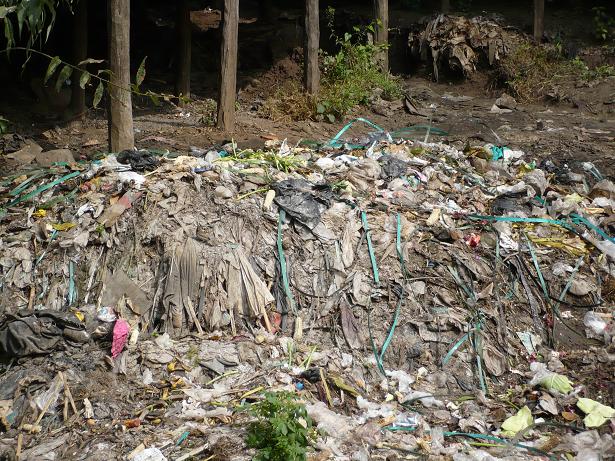- About
- Topics
- Picks
- Audio
- Story
- In-Depth
- Opinion
- News
- Donate
-
Signup for our newsletterOur Editors' Best Picks.Send
Read, Debate: Engage.
The world is facing unprecedented and catastrophic levels of waste, burdening landfills, choking rivers and producing toxic fumes in underprivileged communities. On average the world produces approximately 2.24 billion tonnes of municipal waste each year, while only 55 percent is managed in controlled facilities. At the same time about 931 million tonnes of food are wasted or lost while 14 million tonnes of plastic waste finds its way into aquatic ecosystems.
In Africa, about 90 percent of waste is disposed of in uncontrolled areas including landfills, dumpsites or through open burning. The volume of waste in the continent is estimated to triple from 174 million tonnes per year in 2016 to 516 million tonnes in 2050.
Waste generation in Africa, as is the case with the rest of the world, is attributed partially to population explosion, urbanisation, consumption and production patterns and a growing middle class.
Yet for all trash disposed of through poor waste management practices, the environment and people suffer from proliferation of diseases, pollution, clogged drainage systems and emission of greenhouse gases.
Investment in zero waste or sound waste management practices has shown the potential of generating a circular economy and turning trash to cash for these communities, thereby boosting food security and human health while conserving biodiversity.
These innovations, which are being championed by individuals, small businesses, private entities and governments, have proven that achieving zero waste and circular waste management require action at all levels.
Various African countries, for example, are turning this waste into sustainable sources of energy while tackling energy poverty.
A case in point is Ethiopia’s energy-to-waste facility, the first of its kind in Africa. It is estimated to incinerate about 80 percent of the capital’s waste, estimated to be 1,400 tonnes daily, which in return produces about 185 gigawatts of electricity every year - enough to power 30 percent of the city’s households while meeting the EU’s standards on air emissions.
One Nigerian social enterprise works with parents to collect waste, deliver it to recycling plants and use the waste they have collected as a form of payment for their children’s school fees.
The Initiative for the Advancement of Waste Management in Africa, W.A.S.T.E Africa, a not-for-profit organisation, has been at the frontline of tackling the waste menace. Working with women, girls and the youth-at-risk, the organisation invests in innovative solutions while engaging and advocating for policies on waste management with governments and other private players across Africa.
As the world looks at sustainable and green solutions to heal the planet, such initiatives point to the urgent need of utilising waste as a resource: they deserve global support.
Image by Antoine Giret
